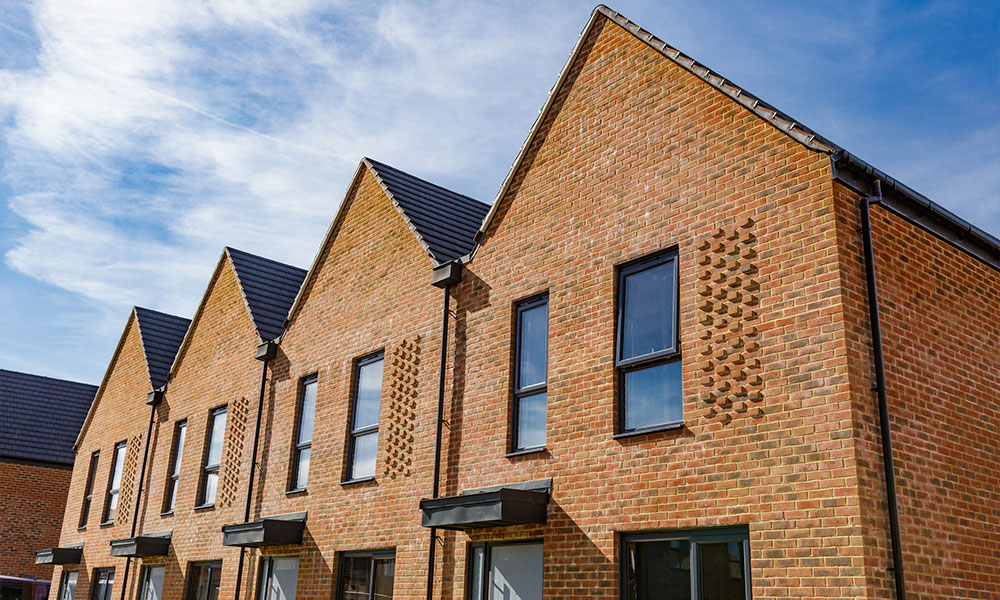Latest property news in the UK: June 2024
June 5th, 2024 BuyingConveyancingMortgagesRemovals

First-time buyers face tough conditions in the housing market
The housing market is currently experiencing conditions that are being described as the toughest for first-time buyers in over 70 years. This situation is the result of several factors including high property prices, elevated interest rates, the end of the Help-to-Buy scheme, and a lack of affordable housing. The difficulties faced by those attempting to get onto the property ladder are profound, with many potential buyers finding home ownership increasingly out of reach.
Escalating property prices
One of the most significant barriers for first-time buyers is the rise in property prices. According to recent data, the average price of a home in the UK has surged to record levels, far outpacing the growth in average incomes. This surge has been driven by several factors including high demand, low supply, and the lasting effect of the Government’s decision to temporarily stop stamp duty in an attempt to keep the economy moving during Covid-19. As a result, the traditional notion of saving for a deposit and securing a mortgage has become a far more daunting prospect for many first-time buyers.
Rising interest rates
Intensifying the issue of high property prices are the rising interest rates. The Bank of England has been incrementally raising interest rates to combat inflation, although they have been kept at the current rate for several months now. Compared with the extremely low interest rates experienced during Covid-19, these hikes have had a direct impact on mortgage rates, making borrowing more expensive for first-time buyers. The increased cost of borrowing not only affects the affordability of monthly mortgage payments but also reduces the amount that buyers can borrow, further restricting their ability to purchase homes.
Lack of affordable housing
Another factor contributing to the challenges faced by first-time buyers is the shortage of affordable housing. There has been an undersupply of new homes, particularly those that are affordable for first-time buyers. The limited availability of suitable properties drives competition, pushing prices even higher and making it more difficult for new entrants to the market to secure a home.
Stagnant wages
While property prices and interest rates have been rising, wage growth has not kept pace. For many first-time buyers, the gap between their incomes and the cost of purchasing a home has widened significantly. The average house price rose from approximately £170,000 in 2013 to over £300,000 by the end of 2023, marking an overall increase of around 76%. Whereas wage growth has been much more modest. Average weekly earnings in the UK have increased from about £450 in 2013 to roughly £600 in 2023, reflecting a growth of about 33%. This stagnation in wages means that even as potential first-time buyers save diligently, the goal of owning a home moves further out of reach.
Government initiatives
The UK government has implemented various schemes intended to assist first-time buyers, such as Help to Buy and shared ownership initiatives. However, while these schemes provide some relief, they are often criticised for not addressing the root causes of the affordability crisis. Critics argue that these measures can sometimes inflate prices further by increasing demand without a corresponding increase in supply.
Unfortunately for potential first-time buyers, at the end of March 2023, the Government stopped the Help-to-Buy scheme and currently, there are no plans for the government to introduce any new schemes to replace it.
Looking ahead
Addressing the challenges faced by first-time buyers requires a complex approach. Increasing the supply of affordable housing is critical, as well as increasing the number of homes in general, and addressing the factors driving up property prices and interest rates.
In conclusion, first-time buyers are facing historically tough conditions. With property prices at an all-time high, rising interest rates, stagnant wages, and a lack of affordable housing, the barriers to homeownership have never been greater. Addressing these issues will require concerted efforts from policymakers, industry stakeholders, and the community at large to ensure that the dream of owning a home remains attainable for future generations.